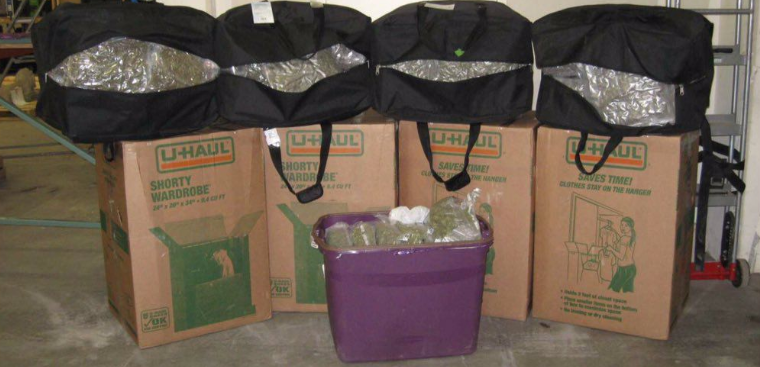This fentanyl seizure is the largest-ever in Nebraska and one of the largest in the nation
October 12, 2017
The Drug Enforcement Agency and the Nebraska State Patrol made a record-setting fentanyl seizure — 15 kilos, with a potential street value of $15 million — during routine surveillance at the Amtrak train station in Omaha on Wednesday morning.
"This fentanyl seizure is the largest-ever in Nebraska and one of the largest in the nation," Acting U.S. Attorney Robert Stuart said in a press release Thursday.
Edgar Navarro-Aguirre, a 27-year-old California man, has been charged with possession with intent to distribute more than 400 grams of fentanyl, an opioid said to be 40 to 50 times more potent than heroin.
They believe he was taking the drug from Sacramento to the New York and New Jersey area, according to the press release.
In court documents, a special agent with the DEA said she noticed a newer-looking, black suitcase, without an ID tag, tucked in the far back of the self-storage luggage shelves behind another bag.
As the agent and a State Patrol investigator were asking people on the train car if the bag belonged to them, Navarro-Aguirre walked up and said it was his friend's.
He previously had said it wasn't his.
According to the affidavit for Navarro-Aguirre's arrest, he told the State Patrol investigator he had traveled from Colorado, which didn't match his ticket, which said he had boarded at Sacramento, California.
Navarro-Aguirre denied there was anything illegal in the bag and told officials they could search it, the DEA agent said. Inside, they found 15 vacuum-sealed bundles of white powder ultimately found to be fentanyl, according to the affidavit.
The total weight of one of the packages was 1.2 kilos, or roughly 2.7 pounds.

